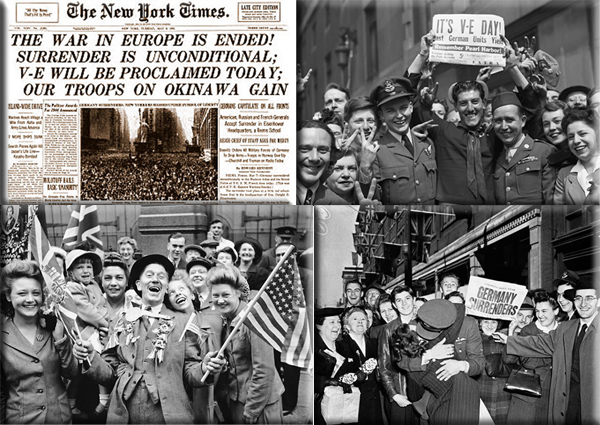
Victory in Europe on May 8, 1945.
On this day in 1945, both Great Britain and the United States celebrate Victory in Europe Day. Cities in both nations, as well as formerly occupied cities in Western Europe, put out flags and banners, rejoicing in the defeat of the Nazi war machine.
The eighth of May spelled the day when German troops throughout Europe finally laid down their arms: In Prague, Germans surrendered to their Soviet antagonists, after the latter had lost more than 8,000 soldiers, and the Germans considerably more; in Copenhagen and Oslo; at Karlshorst, near Berlin; in northern Latvia; on the Channel Island of Sark—the German surrender was realized in a final cease-fire. More surrender documents were signed in Berlin and in eastern Germany.
The main concern of many German soldiers was to elude the grasp of Soviet forces, to keep from being taken prisoner. About 1 million Germans attempted a mass exodus to the West when the fighting in Czechoslovakia ended, but were stopped by the Russians and taken captive. The Russians took approximately 2 million prisoners in the period just before and after the German surrender.
Meanwhile, more than 13,000 British POWs were released and sent back to Great Britain
Pockets of German-Soviet confrontation would continue into the next day. On May 9, the Soviets would lose 600 more soldiers in Silesia before the Germans finally surrendered. Consequently, V-E Day was not celebrated until the ninth in Moscow, with a radio broadcast salute from Stalin himself: “The age-long struggle of the Slav nations... has ended in victory. Your courage has defeated the Nazis. The war is over.” History Channel
Wikipedia Image: Victory in Europe Day: National WWII Museum.org (Courtesy of Corbis, Temple University, Urban Archives, Philadelphia, Pa.), Ecstatic crowds in London celebrating the end of the European phase of World War II, May 8, 1945 (Britannica), Toronto Archives caption: Victory in Europe Day celebrations, Toronto, May 8, 1945. (Maple Leaf Up)

Understanding Military Terminology - Defilade
(DOD) 1. Protection from hostile observation and fire provided by an obstacle such as a hill, ridge, or bank. Source: JP 3-09
(DOD) 2. A vertical distance by which a position is concealed from enemy observation. Source: JP 3-09
(DOD) 3. To shield from enemy fire or observation by using natural or artificial obstacles. Source: JP 3-09
The Old Salt’s Corner - Foul
Foul (nautical): Foul is a nautical term meaning to entangle or entwine, and more generally that something is wrong or difficult. The term dates back to usage with wind-driven sailing ships. It is usually applied to the state of an anchor, which has become hooked on some impediment on the ground, or has its cable wound round the stock or flukes. The term can be applied to many nautical situations:
Foul hawse - when a ship lying to two anchors gets the cables crossed.
Foul bottom - in reference to a seafloor that has poor qualities for securing an anchor, such as hard rocks, coral, wreckage, or other impediments that would make securing or unsecuring an anchor difficult or impossible. Also, in reference to the hull of ship that is so encrusted with weeds and marine growth as to impede her progress.
Foul wind - when a strong head wind prevents a sailing ship from keeping her desired course.
Foul deck - on an aircraft carrier, when the deck is occupied by aircraft, thus preventing other aircraft from landing.

“I’m Just Sayin’”
You have the right to remain silent. Anything you say will be misquoted, then used against you.

“Thought for the Day”
“The philosopher should be a man willing to listen to every suggestion, but determined to judge for himself. He should not be biased by appearances, have no favorite hypothesis, be of no school, and in doctrine have no master. He should not be a respecter of persons, but of things. Truth should be his primary object. If to these qualities be added industry, he may indeed hope to walk within the veil of the temple of Nature.”
~ Michael Faraday (1791-1867)
“What I Have Learned”
Learn the rules so you know how to break them properly.

Bizarre News (we couldn’t make up stuff this good – real news story)
NORFOLK, Virginia - According to a police report, Tevin Monroe, 31, walked into a McDonald’s in Norfolk, Va., in December to inquire about a job, asked a manager for an application, and was told that the form was available online and that he should go download it.
The manager’s response left Monroe dissatisfied, and he lifted his shirt to show the manager the gun in his waistband. The manager quickly located a paper application for Monroe (but also discreetly summoned police, who arrived and arrested Monroe while he was still filling out the form).WVEC-TV (Norfolk)
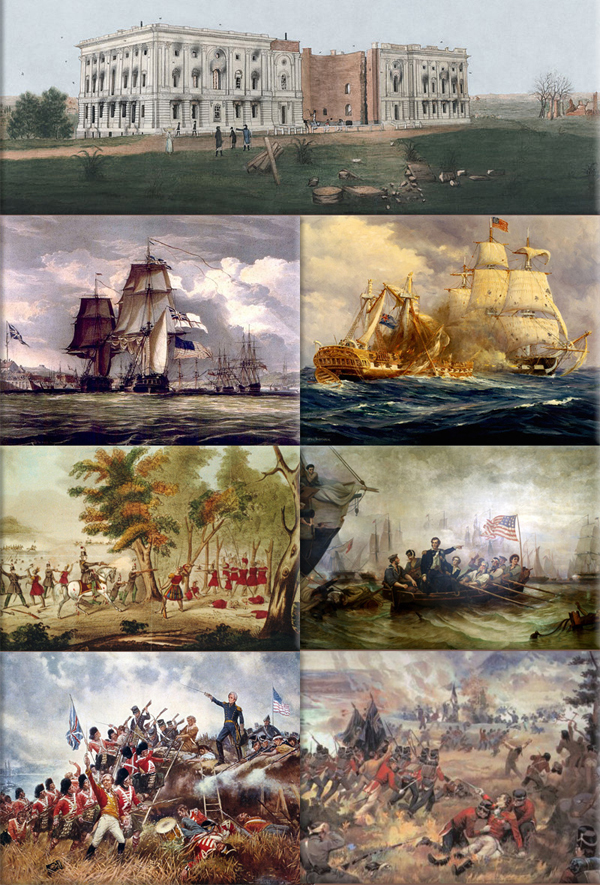
Mr. Answer Man Please Tell Us: Has any U.S. President ever fought in battle while in office?
James Madison was the only president to face enemy gunfire WHILE IN OFFICE. After graduation from Princeton, young Madison took an increasing interest in the relationship between the American colonies and Britain, which deteriorated over the issue of British taxation. In 1774, Madison took a seat on the local Committee of Safety, a patriot pro-revolution group that oversaw the local militia.
This was the first step in a life of public service that his family's wealth allowed him to pursue. He would not serve in combat during the Revolutionary War as he was of very slight stature (5-2) and weighed only about 100 pounds. When the British invaded and burned Washington, D.C. in the War of 1812, Madison took command of a battery of artillery, exercising his authority as commander-in-chief and thus becoming the only sitting president to fight in battle.
Wikipedia Painting: Painting: Damage to the U.S. Capitol after the Burning of Washington; HMS Shannon leading the captured American frigate USS Chesapeake into Halifax, Nova Scotia (1813); USS Constitution vs HMS Guerriere; the death of Tecumseh at Moraviantown; Oliver Hazard Perry's message to William Henry Harrison after the Battle of Lake Erie began with what would become one of the most famous sentences in American military history: “We have met the enemy and they are ours”; Andrew Jackson leads the defence of New Orleans; The mortally wounded Isaac Brock spurs troops on at the Queenston Heights.
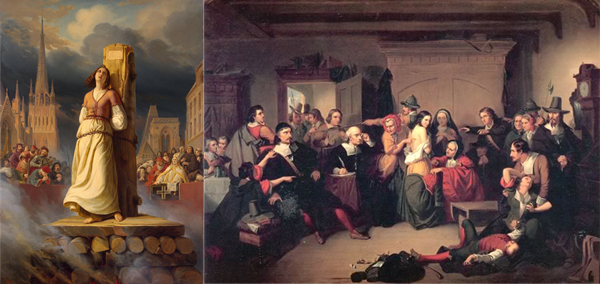
Where Did That Saying Come From?
“The burning question:” During a time when the church and the state were equal in government, anyone failing to follow the state religion was burned at the stake. Those who demanded the separation of church and state were considered heretics, and thousands who were caught discussing the issue were burned at the stake.
Because of this, whenever there was a secret debate on religious freedom, the subject was referred to as “the burning question”. We often refer to an important issue as “the burning question” of the day.Discovery
Wikipedia Image: Joan of Arc / Salem witch trials
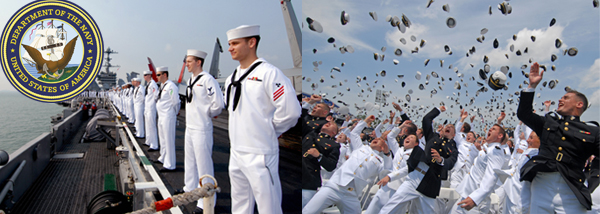
NAVSPEAK aka U.S. Navy Slang
Filthy Fifteen: The fifteen recruits assigned to maintain cleanliness of the compartment head for the division in boot camp.
Five and Dimes: A watch rotation where the sailor or watch team stand five hours of watch, then have ten hours off (to clean, perform maintenance, train, get qualified, conduct drills, take care of divisional business or their collateral duty, eat, shower, and occasionally sleep). This follows from a three-section watch rotation, and results in the sailor standing watch at a different time every day and night, repeating every three days.
GCE: Gross Conceptual Error. This grading remark often appears on nuke-school exams.
Sick in Quarters (SIQ): When a sailor is too ill or incapacitated to perform his duties, he is thus required to report to his rack (quarters), where he will remain until healthy again. For personnel aboard ship, this means to remain in bed, while onshore this may simply mean to stay home for the day. Only qualified medical personnel can recommend SIQ, and only the command can authorize it.
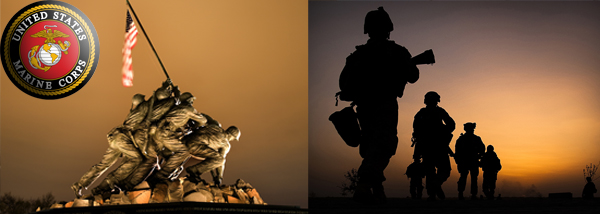
Just for MARINES
Bronze Star: A personal decoration originally intended for valorous service. By the end of the 20th Century it was being given out for many non-combat acts, it even became known as the "officers' good conduct medal". The value of the award was deflated so much that a metal "V" device to be worn on the medal's suspension ribbon was issued to indicate valor--it succeeds only infrequently. The Bronze Star medal can also be awarded for superior service. After World War II it was given retroactively to every soldier who had been awarded the Combat Infantry Badge.
Brown Shoe Marine: An old salt. Until Secretary of Defense McNamara, under President Kennedy, forced all of the services to use the same shoes, Marines were issued brown shoes. In the early 1960s the shoe color changed to black but the old salts continued to wear their brown shoes as long as they could get away with it. The color of the dress shoe polish was actually “Cordovan” which was a dark brown with a red tint. In the Navy, any member of the aviation community is called Brown Shoe in reference to the aviator's brown flying boots.
Brown Shoe Navy: Naval officers assigned to aviation billets from World War II through Vietnam were authorized Aviation Greens in addition to their standard Navy blue uniform. The cut was very similar to Marine greens except that there was no belt. Rank insignia was in black and they wore a khaki shirt and black necktie. The shoes were lighter brown than the standard Marine Corps issue of the time and they wore tan socks. The Naval Aviator wings were gold embroidered and the fore and aft cap had small solid gold wings on the port side and rank insignia on the starboard.

Navy Acronyms
NADEP - Naval Aviation Depot
NAE - Navy Acquisition Executive
NAIAO - Naval Aviation Interoperability Assurance Office
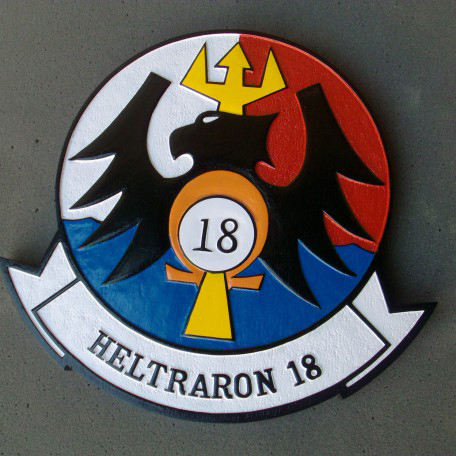
Naval Aviation Squadron Nicknames
HT-18 - Helicopter Training Squadron 18: “Vigilant Eagles” NAS Whiting Field, Florida

The Strange, Mysterious or Downright Weird
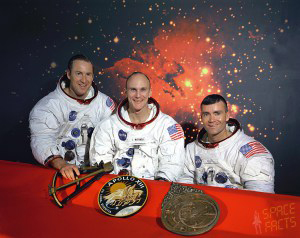
The drama surrounding the ill-fated Apollo 13 mission was an ideal subject for a series of books and movies. But the most disturbing aspect of the near disaster has mostly been neglected. Apollo 13 was a nuclear catastrophe waiting to happen, as aboard the Lunar Excursion Module (LEM) was a plutonium power cell.
Called 'Systems for Nuclear Auxiliary Power' (SNAP-27) it contained 3.8 kilograms of plutonium, which is so toxic that less than a millionth of a gram can cause cancer. Designed to be left behind on the moon, the crippled Apollo 13 was forced to carry it back to Earth. Not only were the three astronauts in danger but millions on the ground unwittingly lived under threat from the toxic space junk.
When the paralyzed Apollo 13 re-entered Earth's orbit, the astronauts transferred back to the command module, and the LEM with its nuclear payload was jettisoned. It re-entered the atmosphere somewhere over New Zealand and although the LEM burned up, SNAP-27 survived re-entry and plunged intact into the Pacific Ocean off Tonga, where according to NASA it is "isolated from man's environment." SNAP-27's radioactivity will last 2000+ years and its watery grave comprises some of the world's prime fishing grounds.
It wouldn't be until 2004 that a scientific team in league with National Geographic Magazine retrieved about thirty skeletons, some with flesh and hair still attached. With these, they began to uncover the truth, and their answers startled them. For starters, all of the bodies dated to roughly 850 AD.
NASA successfully concealed the crisis from the world at the time, and continued to power some spacecraft with plutonium, such as launching the Cassini probe with a 33 kilo plutonium cell.
The drama surrounding the ill fated Apollo 13 mission (History Place)
OH WHAT A YEAR - 1994
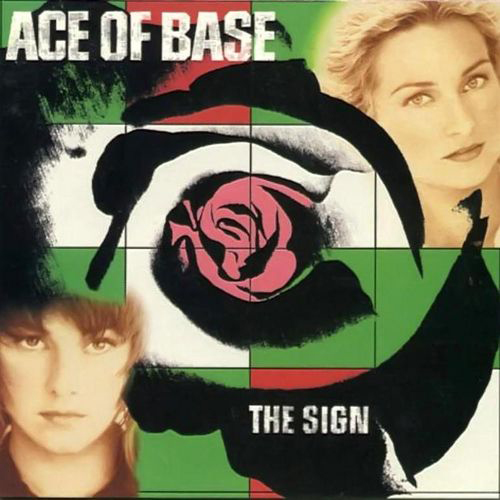
1. The Sign - Ace Of Base
2. I Swear - All-4-One
3. I'll Make Love to You - Boyz II Men
4. The Power of the Dream - Céline Dion
5. Hero - Mariah Carey
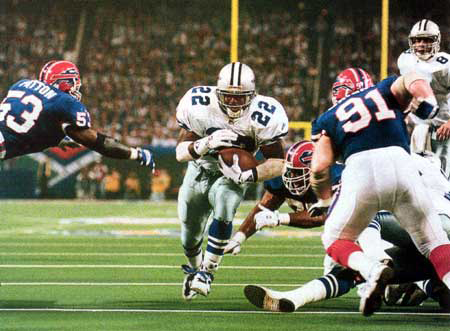
● World Series Champions: No one…Major League Baseball Players Association was on strike.
● Superbowl XXVIII Champions: Dallas Cowboys
● NBA Champions: Houston Rockets
● Stanley Cup Champs: New York Rangers
● U.S. Open Golf: Ernie Els
● U.S. Open Tennis (Men/Ladies): Andre Agassi / Sanchez Vicario
● Wimbledon (Men/Women): Pete Sampras / Conchita Martinez
● NCAA Football Champions: Nebraska
● NCAA Basketball Champions: Arkansas
● Kentucky Derby: Go For Gin
● World Cup (Soccer): Brazil
Image: Super Bowl XXVII – Dallas Cowboys won 52–17 over the Buffalo Bills (NFL)

1. Seinfeld (NBC)
2. E.R. (NBC)
3. Home Improvement (ABC)
4. Grace Under Fire (ABC)
5. NYPD Blue (ABC)
Image: Seinfeld (NBC)
Most Popular Christmas gifts 1994
● Starting Lineup statuettes
● Barbie as Scarlett O’Hara & Ken as Rhett Butler
● Barbie as Dorothy in the Wizard of Oz
● Blurt!

● “If you can't suppress 'em, join 'em.”
~ Times critic Howard Rosenberg on Judge Lance Ito's decision to be interviewed by Tritia Toyota for KCBS-TV (Calendar, Nov. 16)
● “And a generation of screen phones [a standard phone with a minicomputer] in which the typically cryptic buttons are replaced with a graphics interface.”
~ Bill Gates in an interview with Playboy
● “My momma always said that life was like a box of chocolates, you never know what you’re gonna get.”
~ Tom Hanks in “Forrest Gump”
Image: Tom Hanks in “Forrest Gum” Paramount Pictures

Trivia
● Emus have double-plumed feathers, and they lay emerald/forest green eggs.
● In Disney's “Fantasia”, the Sorcerer's name is “Yensid” (Disney backwards).
● The yo-yo originated in the Philippines, where it was used as a weapon in hunting.
A Test for People Who Know Everything
What were the names of the two zany crash-test dummies who urged the U.S. car-riding public to buckle up in an ad campaign that ran from 1985 to 1998?
● Answer for People Who Do Not Know Everything, or Want to Verify Their AnswerWikipedia
Answer to Last Week's Test
Why are U.S. Marines nicknamed “leathernecks”?
Answer: The first US Marines wore high leather collars to protect their necks from sabers, hence the name “leathernecks”.Wikipedia
Joke of the Day
An older, white haired man walked into a jewelry store one Friday evening with a beautiful young girl at his side. He told the jeweler he wanted a special ring for his girlfriend. The jeweler looked through his stock and found a $5,000 ring. The old man said, “No, I'd like to see something much more special.”
The jeweler went to his special stock in the safe and brought another ring back. “This one's $40,000.” The young lady's eyes sparkled and her whole body trembled with excitement. The old man said, “I'll take it!”
The jeweler asked how payment would be made, and the old man said, “By check, but I know you need to make sure my check is good, so I'll write it now, and you can call the bank on Monday to verify funds. I'll pick up the ring on Monday afternoon.” Monday morning, the jeweler called the old man saying, “There's no money in that account!” The old man said, “I know, but let me tell you about my weekend!”



















